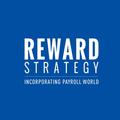Intelligence, community and recognition for pay and reward professionals.
The future of HR: Trends to watch in 2025
 Reward Strategy
Reward StrategyWith significant shifts on the horizon for 2025, Coople outlines key trends in human resources including workplace flexibility, AI integration and the push for inclusivity

The landscape of human resources in the United Kingdom is set to undergo significant transformation as businesses prepare for the developments of 2025. Coople, a prominent digital staffing platform, has compiled essential insights to inform HR managers about what to anticipate in the forthcoming year. These trends are shaped by recent employment law changes, the evolving political landscape, and rapid advancements in artificial intelligence (AI) technologies.
One of the foremost trends identified is the increasing importance of flexibility in the workplace. Companies that provide flexible working arrangements are more likely to attract talented individuals. Despite some organisations insisting on a return to the office, models such as working from home (WFH) and hybrid work continue to gain preference among employees. Coupled with options like flexi-time and job sharing, these arrangements allow workers to tailor their roles according to individual needs.
Another noteworthy consideration is the emergence of the four-day work week and the "compressed week" model, both of which are likely to gain traction. The Labour Party has indicated intentions to facilitate worker choices regarding compressed work weeks, allowing staff to fulfil the same number of hours across four days. Concurrently, the 4 Day Week Campaign is planning further trials in 2025, showcasing benefits observed in previous pilots, where 71% of participating companies reported a reduction in employee burnout and a 65% decrease in sick days.
Artificial intelligence has also made a significant mark on the HR sector. According to Coople, the capability to utilise AI has become an essential skill in many roles. Hiring processes are increasingly being enhanced through AI, which can streamline tasks like scheduling interviews and managing applicant tracking systems. These AI optimisations aim to improve the accuracy of candidate selection against defined job criteria, leading to more efficient hiring practices.
Anticipated government policies are expected to expand options for working parents, including increased access to flexible working and enhanced paternity leave rights. With the introduction of free childcare for children under five in late 2025, working parents are likely to receive substantial support. Businesses may need to adapt and accommodate the growing number of parents re-entering the workforce, taking into account their familial responsibilities.
The call for inclusivity in workplaces is set to rise, with the need to support those with mental and physical health conditions becoming more pronounced. Approximately 25% of the global workforce reports such conditions, adding urgency to the obligation of employers to provide reasonable adjustments under the Equality Act 2010. An inclusive environment not only meets legal requirements but may also attract a diverse talent pool, fostering innovation and organisational growth.
Furthermore, the focus on health and wellbeing in the workplace continues to intensify. Benefits such as health insurance and dedicated wellbeing days off are growing increasingly popular. Research from the Health and Safety Executive (HSE) reveals that significant workdays are lost annually due to stress-related issues, leading businesses to consider policies promoting mental health days and flexible working to support their employees’ wellbeing.
As companies shape their work cultures, there is a propelling narrative towards creating purpose-driven workplaces. Employees are more likely to engage with their roles when they feel a connection to the company’s mission, promoting a positive work environment and higher levels of job satisfaction.
Rufus Hood, Country Manager UK at Coople, highlighted the necessity for businesses to stay ahead of impending legislative changes. "While there has been a great deal of discussion around AI as a creative tool," Hood stated, "its potential as an administrative tool that helps businesses save time should not be overlooked." He emphasised that these advancements in technology can facilitate essential HR functions from hiring to performance analytics.
Coople, founded in Switzerland in 2009, has grown into one of Europe’s largest digital staffing platforms, boasting over 1 million registered workers and 25,000 companies. It adeptly connects flexible workers to various assignments across multiple sectors, including office, retail, logistics, hospitality, and events.
As the HR landscape continues to evolve, these insights from Coople present a roadmap for companies seeking to thrive in the changing environment of the future workforce.
